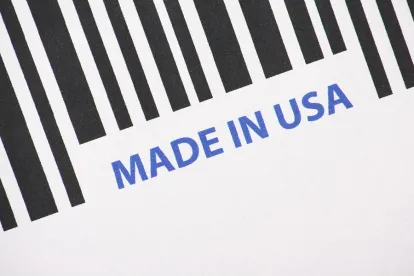On March 1, 2018, President Trump announced that the Administration plans to institute tariffs on steel and aluminum imports to the United States. President Trump indicated that the tariff levels would be 25% on steel imports and 10% on aluminum imports, and that these tariffs would be in place for an “unlimited period.” Regarding the timing of imposition for these tariffs, President Trump stated that the relevant provisions were “being written now” and that “sometime next week” he would be “signing it in.” These statements came during a March 1 listening session with representatives of the steel and aluminum industry.
This March 1 listening session follows the Department of Commerce’s February 16 announcement that it had recommended the imposition of global tariffs or other remedies pursuant to its ongoing national security investigations of steel and aluminum under Section 232 of the Trade Expansion Act of 1962. By statute, the president must make a decision in the steel investigation by April 11, 2018, and in the aluminum investigation by April 19, 2018. The president has discretion to follow the Department of Commerce’s recommendations, take other action, or take no action.
The Department of Commerce’s reports on steel and aluminum in these investigations—which recommended tariffs or other remedies—also suggested that the president could exempt imports from specific countries from remedies ultimately imposed. Such exemptions could be granted based on an overriding economic or security interest of the United States, which could include these countries’ willingness to work with the United States to address global excess capacity and other industry challenges. The Department of Commerce’s reports propose that any such exemptions should be put in place at the time the president imposes a remedy in these investigations. In addition, if such exemptions are granted, the Department of Commerce suggests that the president should make corresponding adjustments to the tariff or quota levels imposed on imports from other countries, to ensure the desired benefit to U.S. industry.
The Department of Commerce has also recommended an appeal process by which affected U.S. parties could seek an exclusion from the tariff or quota imposed. According to the Department of Commerce’s reports, exclusions would be granted based on: (1) a demonstrated lack of sufficient U.S. production capacity of comparable products; or (2) specific national security based considerations. The Department of Commerce has recommended that this appeal process would include a public comment period on each exclusion request, and in general, would be completed within 90 days after an application was filed.
James Smith and Kate Gibson contributed to this article.




 />i
/>i

